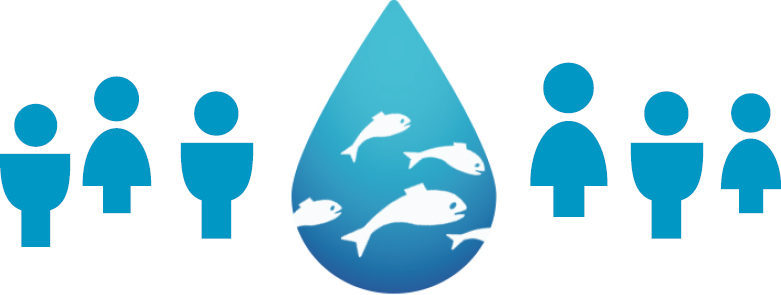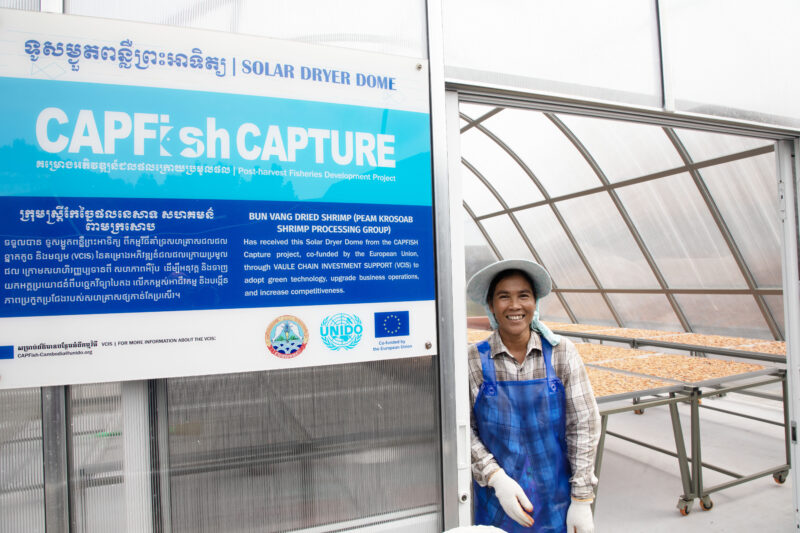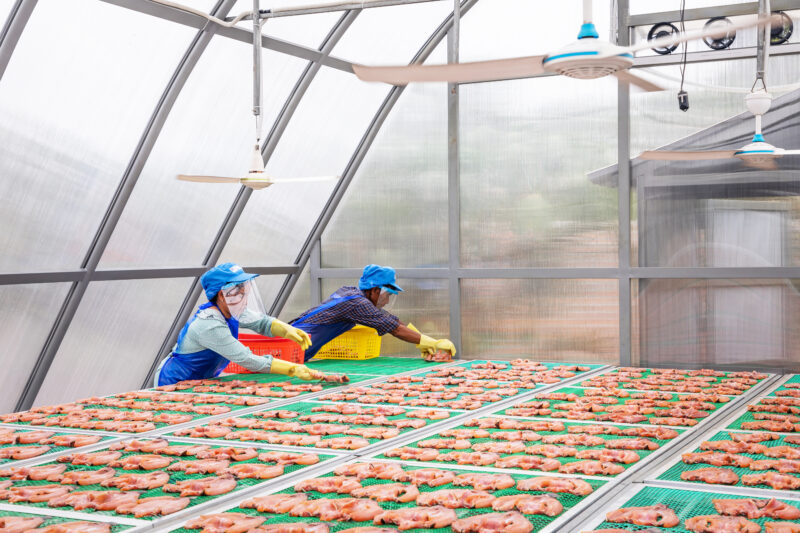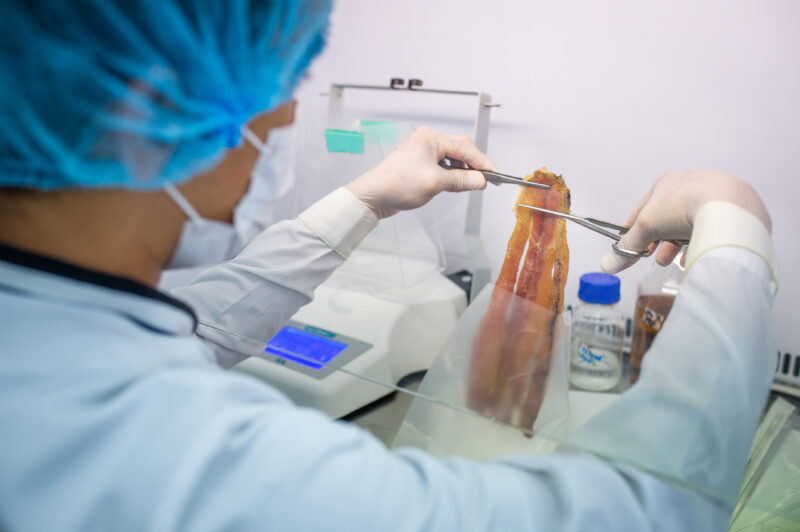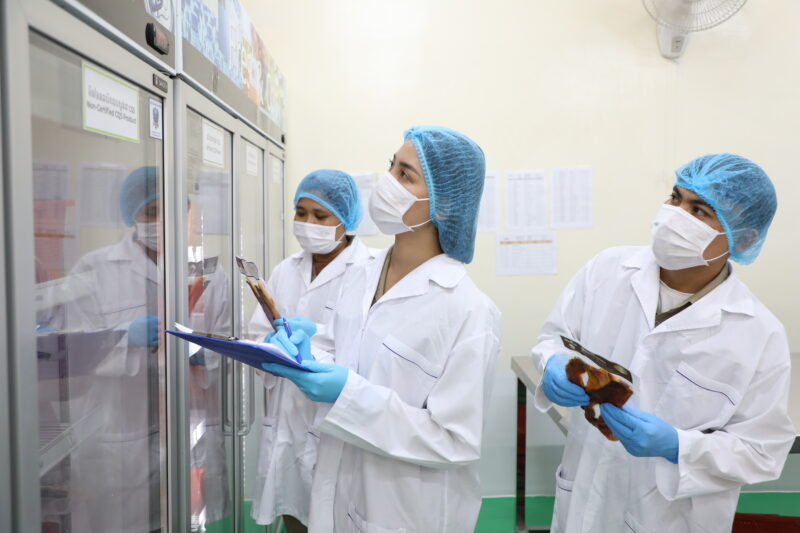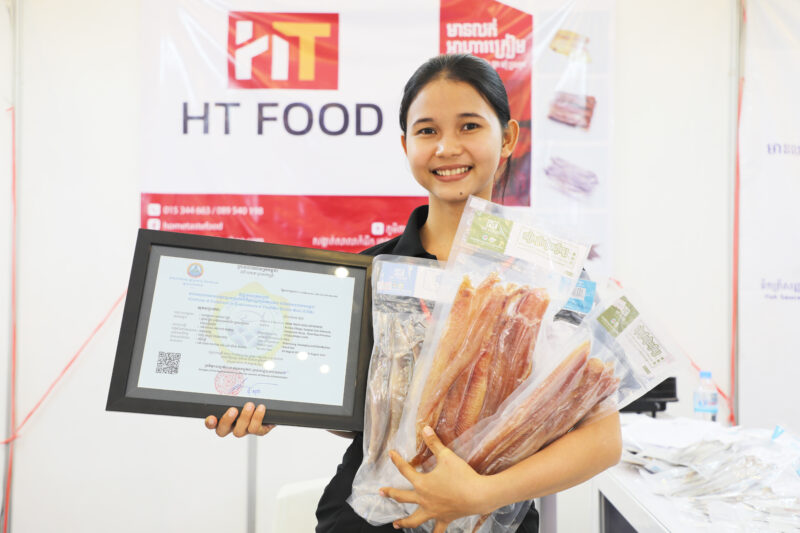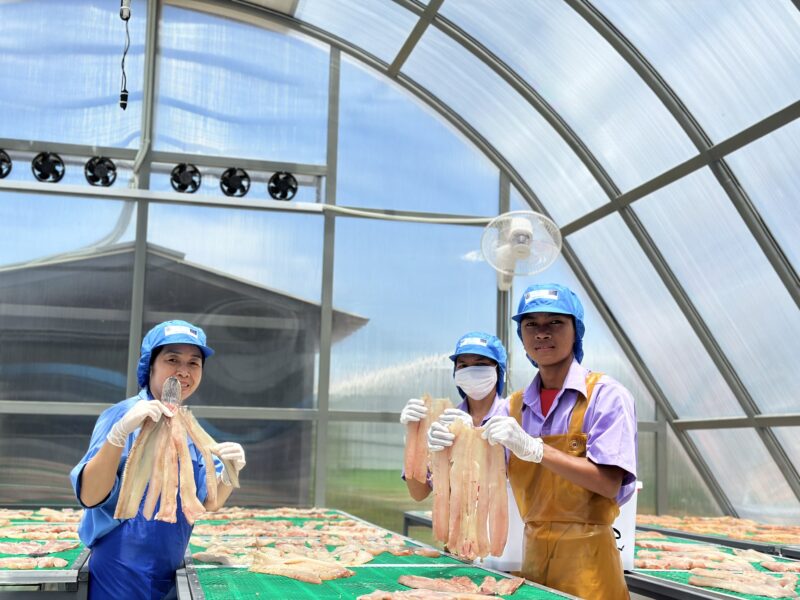Cambodia’s fisheries sector is vital to the economy, supporting millions of livelihoods and holding great potential for local and export markets. However, certain barriers like limited access to resources, technology, finance, and international markets hinder its growth.
To unlock this potential, the United Nations Industrial Development Organization (UNIDO), in partnership with Cambodia’s Fisheries Administration (FiA) and the Ministry of Agriculture, Forestry and Fisheries (MAFF), launched the CAPFISH-Capture: Post-harvest Fisheries Development project. Co-funded by the European Union (EU), the initiative focuses on promoting business upgrading, innovation, improving food safety and quality standards, providing financial support, and encouraging inclusivity. Its aim is to make the sector more resilient, competitive, and globally connected.
The project covers all parts of the post-harvest value chain, emphasizing food safety governance, capacity building, research and development, market access, environmental sustainability, and gender empowerment. It involves diverse stakeholders, including government agencies, private sectors, fish processing communities, industry associations, financial institutions, and academia, to ensure sustainable growth.
Key achievements include establishing and strengthening the Fisheries Competent Authority (FCA) and an official food safety control system, creating a pool of qualified auditors, and preparing Cambodia for an audit by the EU’s Directorate-General for Health & Food Safety (DG SANTE) by 2026. Success in this area could unlock access to the EU market, opening new export opportunities and fueling economic growth.
Through its Value Chain Investment Support (VCIS) schemes, the project supported over 55 fish processing enterprises in upgrading their operations. 19 enterprises achieved the Cambodian Quality Seal (CQS), a voluntary food safety certification scheme, and four enterprises obtained HACCP certification, boosting their market credibility. Nine enterprises with export potential adopted traceability systems called CamTrace, established under the project. CAPFISH-Capture provided market linkage support to connect these enterprises with buyers from France, South Korea, China, Australia, and New Zealand, some of whom are already exporting. This progress demonstrates tangible steps toward expanding exports and increasing income for local communities.
Additionally, the Food Technology, Research, and Innovation Platform (FTRIP) was established as part of the project to foster collaboration among government, academia, and businesses. Since its inception, it has supported 23 research projects to address technological challenges. Seven of these research projects have worked on the commercialization of new products and technologies. Notably, Prahok, a traditional Cambodian fish paste, was registered as a Geographical Indication (GI), protecting its cultural heritage and enhancing its global presence.
The Cambodia Packaging Center (CPC) was also created as a hub for sustainable packaging solutions. Now it is a voting member of the World Packaging Organization (WPO), allowing Cambodia to benefit from international packaging expertise and knowledge.
These efforts have gained regional recognition, inspiring countries like Indonesia and the Philippines to consider similar models, while others, such as Egypt, Chile, and Kyrgyzstan, seek to learn from Cambodia’s experience.
Ultimately, the goal is to secure EU approval for Cambodian fishery exports, which can serve as a global passport providing access to other international markets. With all requirements met and an audit scheduled by 2026, achieving this would boost the sector and promote sustainable growth. The CAPFISH-Capture project exemplifies how strategic, inclusive, and innovative approaches can transform Cambodia’s post-harvest fisheries and open long-term economic opportunities.
Interested in this work? Contact Dr. THOMBATHU, Seetharama Shetty (UNIDO’s Senior Technical Advisor): T.SHETTY@unido.org
UNIDO’s CAPFISH-Capture Newsletters
